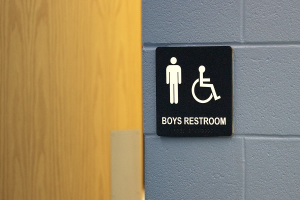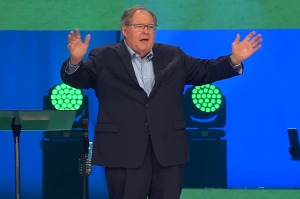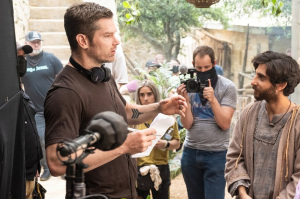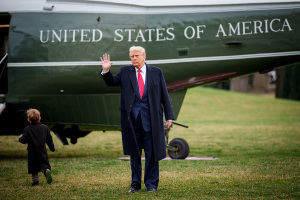North Korean woman imprisoned for faith shares how God sustained her amid horrific abuses
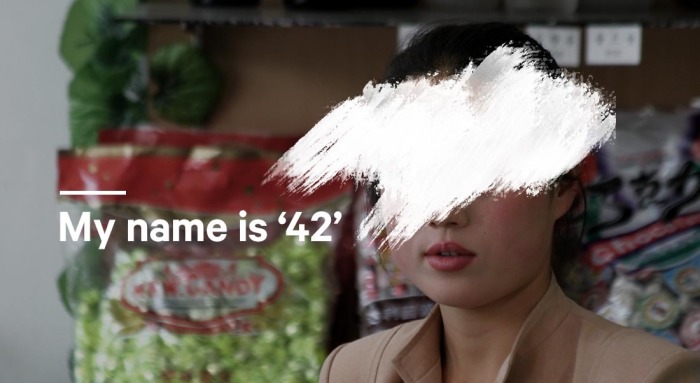
A Christian survivor of a North Korean prison camp describes the horrific torture she endured for her faith and how God stayed with her through the brutality.
In an interview with persecution watchdog group Open Doors, a woman identified only as "Prisoner 42" shared how she became a Christian after fleeing to China in the midst of North Korea's great famine. In China, she was captured and sent to a North Korean prison camp, where she spent one year in solitary confinement.
When she arrived at the prison camp, guards shaved her head and stripped her down to nothing. Each morning when they would call for her, she would crawl out of a door flap — typically used for dogs or cats — and keep her head bowed low because she was not allowed to make eye contact with the guards.
She recalled how, for an hour, guards would ask her the same questions: "Why were you in China? Who did you meet? Did you go to church? Did you have a Bible? Did you meet any South Koreans? Are you a Christian?"
To stay alive, she was forced to lie: "Am I a Christian? Yes. I love Jesus. But I deny it. If I admit that I was helped by Chinese Christians, I will be killed, either quickly or slowly," she said. "They will murder me in this North Korean prison. Every day, I’m beaten and kicked — it hurts the most when they hit my ears. My ears ring for hours, sometimes days."
During her year in solitary confinement, she was trapped in a cold cell and never saw sunlight or another prisoner: "I spent one year in prison, and for one year my skin didn’t touch a single ray of sunlight," she said.
So she prayed and sang a song she wrote in her head — but never out loud. Lyrics included the lines “My heart longs for my Father in this prison/Although the road to truth is steep and narrow/A bright future will be revealed when I continue.”
"It has been a year now. I don’t know how long I will survive in this place," she wrote. "One day they will call me, and I won’t move. I will have died here in a North Korean prison. They will dispose of my body, and the first new prisoner that comes in will be 'Prisoner 42.' They will wear my clothes."
One day, she appeared in court where she officially divorced her husband against her will. Officials found her not guilty of being a Christian and sentenced her to four years at a re-education camp.
In between working 12 hour days, she became sick and had to stay in the barracks. There, she saw a woman praying in tongues under a blanket.
"Inside this North Korean prison, we wound up forming a secret church. When we met and felt safe enough, we prayed the Lord’s Prayer and the Apostles’ Creed," she said. "She was actually much braver than I was. She spoke to others about Christ as well."
But one day a car came and took her away: “When I saw her leave, I knew they were taking her to a maximum-security Kwan-li-so. I knew I would never see her again,” she said.
Meanwhile, "Prisoner 42” was released after two years. She told Open Doors the first thing she plans to do is find her husband and children.
"We haven’t seen each other in years," she said. "But God has watched over me here in this North Korean prison, and I pray and believe that He also watches over my family every second of every minute of every hour of every day."
"I need to tell them about this loving God,” she added.
North Korea has been the No. 1 persecutor of Christians on the group's annual list for a consecutive 18 years. The U.S. State Department has also included North Korea on its list of countries violating religious freedom every year since 2001. Open Doors estimates there are 250,000 imprisoned North Koreans — 50,000 of which are political prisoners jailed for their Christian faith.
North Korea has previously arrested South Korean and American missionaries for allegedly attempting to build underground churches, and very few North Korean believers risk trying to win converts, defectors say.
Recently, defector Kwak Jeong-ae, 65, shared how a fellow inmate in North Korea told guards about her own religious beliefs and insisted on using her baptized name, rather than her original Korean name, during questioning in 2004.
“She persisted in saying, ‘My name is Hyun Sarah; it’s the name that God and my church have given to me’,” Kwak said. “She told [the interrogators], ‘I’m a child of God and I’m not scared to die. So if you want to kill me, go ahead and kill me.’”
Kwak said she later saw Hyun coming back from an interrogation room with severe bruises on her forehead and bleeding from her nose. Days later, guards took Hyun away — and Kwak never saw her again.
During his State of the Union Address, President Donald Trump announced he will hold a second nuclear summit with North Korea's leader Kim Jong-un later this month. A number of human rights groups and faith leaders have called on the president to confront Kim face-to-face about his country’s severe human rights violations.
“Following the scheduled meeting in February, within 60 to 90 days President Trump and the United States can determine whether North Korea is serious about opening up to the international community by including monitoring of human rights considerations as part of denuclearization talks," David Curry, CEO of Open Doors, told The Christian Post.
"The human rights violations against Christians in North Korea is unacceptable. Christians are considered the No. 1 enemy of the state of North Korea," he continued. "As the leader of Open Doors USA , I continue to implore President Trump to not shy away from our moral mandate to call Kim Jong Un to task for his litany of human rights abuses — especially his imprisonment, torture and execution of Christians whose only crime was to dare to express any beliefs other than those approved by the Communist regime."
"The situation for Christians in North Korea is vulnerable and precarious," Curry said. "Approximately 50,000 Christians are confined to prison camps — the conditions are deplorable. President Trump can bring some hope by continuing to make human rights a part of the denuclearization deal; these two items need not be mutually exclusive. The people of North Korea deserve our vocal, prayerful and relentless support.”

















